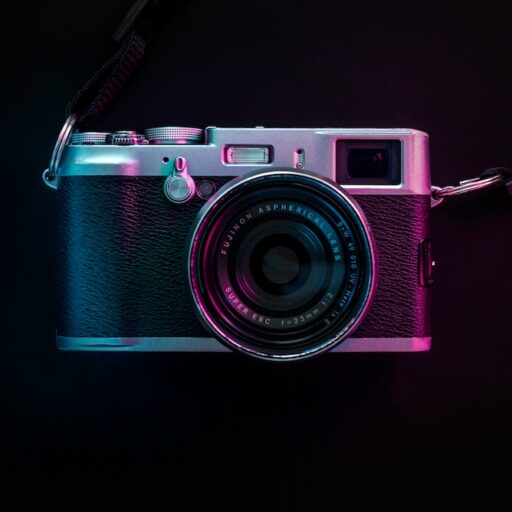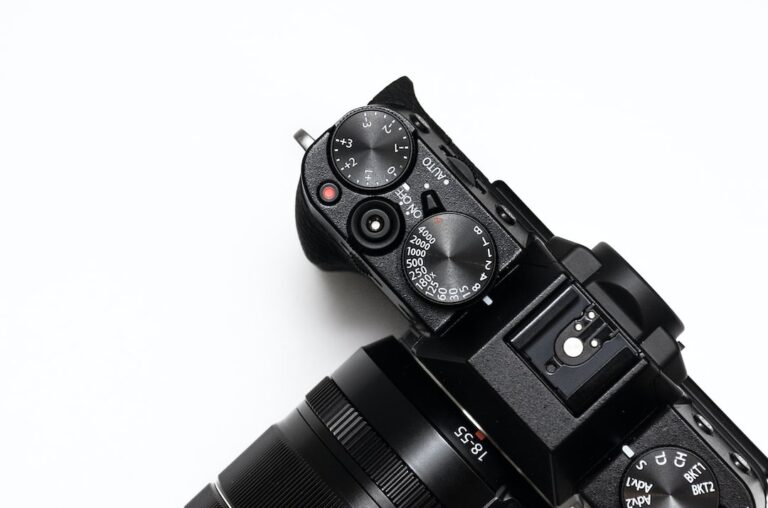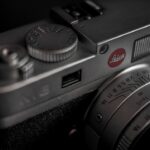Support our educational content for free when you purchase through links on our site. Learn more
Which is Best: Nikon or Canon? 10 Key Factors to Consider! 📸 [2025]
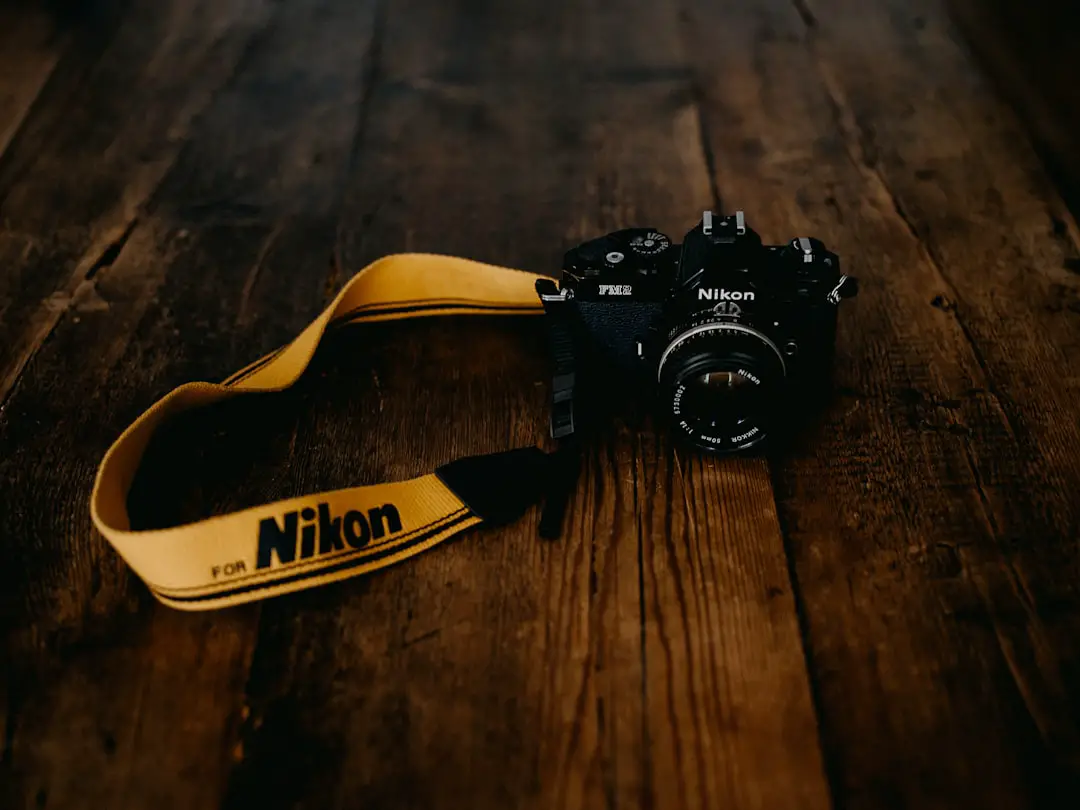
When it comes to the world of photography, the debate between Nikon and Canon is as heated as a summer day in the Sahara! Both brands have carved out their legacies, offering a plethora of cameras that cater to everyone from casual snapshooters to seasoned professionals. But which one truly reigns supreme? 🤔 In this article, we’ll explore 10 crucial factors that will help you decide which brand aligns best with your photography style and needs.
Did you know that both Nikon and Canon have been in the camera game for over 80 years? Their long-standing rivalry has not only fueled innovation but also created a passionate community of photographers who swear by their chosen brand. So, whether you’re looking to capture stunning landscapes, fast-paced sports, or intimate portraits, stick around as we dive deep into the features, performance, and value of these two camera giants!
Key Takeaways
- Image Quality: Both brands offer exceptional image quality, but subtle differences can influence your choice.
- Lens Selection: Canon has a broader range of lenses, while Nikon provides excellent value for money.
- User Experience: Ergonomics and menu systems vary; personal preference plays a key role.
- Autofocus Performance: Canon’s Dual Pixel technology often outshines Nikon in video and live view.
- Video Capabilities: Canon generally leads in video features, making it a favorite among filmmakers.
- Battery Life: Canon cameras typically offer better battery performance.
- Price Point: Nikon often provides more competitive pricing, especially for entry-level models.
Ready to explore your options? Check out our recommended Nikon Cameras and Canon Cameras to find the perfect fit for your photography journey!
Table of Contents
Quick Tips and Facts
The Great Debate: Nikon vs Canon – A Brief History
1. Image Quality Showdown: Nikon vs Canon
2. Lens Selection: Which Brand Offers More?
3. User Experience: Ergonomics and Interface
4. Autofocus Systems: Speed and Accuracy
5. Video Capabilities: Nikon vs Canon
6. Battery Life: Who Lasts Longer?
7. Price Point: Value for Money
8. Customer Support and Community
9. Future-Proofing: Innovation and Technology
Choosing the Right Camera for Your Needs
Expert Recommendations: Best Models from Each Brand
Final Thoughts: Nikon vs Canon – Which One Wins?
Conclusion
Recommended Links
FAQ
Reference Links
Quick Tips and Facts
- Canon and Nikon are the two leading brands in the digital camera market, often sparking heated debates among photography enthusiasts. 📸
- Both brands offer cameras for all levels, from beginners to professionals.
- Image quality is remarkably similar between comparable models from both brands.
- The choice often boils down to personal preference, lens selection, features, and price.
- Consider your specific needs and budget when making a decision.
Is Fujifilm a Good Camera Brand? 7 Reasons to Consider! 📸 2025
The Great Debate: Nikon vs Canon – A Brief History

The rivalry between Nikon and Canon is legendary, dating back to the early days of photography. Both companies have consistently pushed the boundaries of camera technology, constantly innovating and vying for the top spot. This fierce competition has resulted in incredible advancements in the industry, ultimately benefiting photographers of all levels.
But where did it all begin? Nikon, originally named Nippon Kogaku K.K., was established in Japan in 1917, initially focusing on optical instruments. Canon, founded as Precision Optical Instruments Laboratory in 1937, also in Japan, entered the camera market a few decades later. The rivalry ignited in the 1950s and has only intensified over the years.
Today, the debate continues, with passionate advocates on both sides. But one thing is certain: both Nikon and Canon produce exceptional cameras capable of capturing stunning images.
1. Image Quality Showdown: Nikon vs Canon
Let’s address the elephant in the room – image quality. You’d be hard-pressed to find a noticeable difference between images taken with comparable Nikon and Canon cameras. Both brands utilize cutting-edge sensor technology, sophisticated image processors, and top-notch lens designs.
Factors that can influence image quality include:
- Sensor Size and Resolution: Both brands offer cameras with various sensor sizes, including full-frame and APS-C. Resolution also varies, but megapixels aren’t everything!
- Dynamic Range: This refers to the camera’s ability to capture detail in both highlights and shadows. Both Nikon and Canon excel in this area.
- ISO Performance: This measures the camera’s sensitivity to light. Again, both brands offer excellent high-ISO performance, producing clean images even in low light.
- Lens Quality: A high-quality lens can significantly impact image sharpness, clarity, and overall quality. Both Nikon and Canon boast extensive lens lineups.
Verdict: It’s a tie! Image quality is incredibly close between Nikon and Canon. Don’t get bogged down in pixel-peeping; focus on other factors that align with your needs.
2. Lens Selection: Which Brand Offers More?
Ah, the age-old question – Nikon or Canon lenses? Both brands have an impressive selection of lenses, catering to a wide range of photographic styles and budgets.
Nikon Lens Lineup:
- Nikkor Lenses: Known for their sharpness, durability, and overall quality.
- F-Mount: Nikon’s long-standing lens mount for DSLRs.
- Z-Mount: Nikon’s newer lens mount for their mirrorless Z series cameras.
Canon Lens Lineup:
- Canon EF Lenses: A vast selection of lenses for Canon’s EOS DSLR cameras.
- Canon EF-S Lenses: Designed specifically for Canon’s APS-C sensor DSLR cameras.
- Canon RF Lenses: Canon’s latest lens mount for their EOS R series mirrorless cameras.
Third-Party Lens Manufacturers:
- Both Nikon and Canon cameras are compatible with third-party lens manufacturers like Sigma, Tamron, and Tokina, offering even more options.
Verdict: It’s a close call, but Canon takes the slight edge with its extensive lens ecosystem, particularly for DSLRs. However, Nikon’s newer Z-mount system is rapidly expanding.
3. User Experience: Ergonomics and Interface
Picking up a camera for the first time should feel intuitive and comfortable. Both Nikon and Canon have invested heavily in ergonomics and user interface design, but there are subtle differences.
Nikon:
- Menu System: Nikon’s menu system is known for its logical organization and ease of navigation.
- Button Layout: Nikon cameras typically feature a more traditional button layout, with dedicated controls for frequently used settings.
- Ergonomics: Nikon cameras are generally praised for their comfortable grips and well-placed controls.
Canon:
- Menu System: Canon’s menu system can be slightly more complex than Nikon’s, but it offers a high degree of customization.
- Touchscreen Interface: Many Canon cameras feature intuitive touchscreen interfaces, allowing for quick adjustments and menu navigation.
- Ergonomics: Canon cameras are also ergonomically designed, with comfortable grips and well-placed controls.
Verdict: It’s a matter of personal preference. Nikon’s menu system is generally considered more user-friendly, while Canon’s touchscreen interfaces offer a modern touch.
4. Autofocus Systems: Speed and Accuracy
In the world of photography, speed is key, and a fast, accurate autofocus system can make all the difference. Both Nikon and Canon have developed sophisticated autofocus technologies.
Nikon:
- Multi-CAM Autofocus System: Nikon’s renowned autofocus system, known for its speed and accuracy, particularly in challenging lighting conditions.
- Phase-Detection AF: Nikon primarily uses phase-detection autofocus, which is generally faster for tracking moving subjects.
Canon:
- Dual Pixel CMOS AF: Canon’s revolutionary autofocus system, renowned for its exceptional speed and accuracy, especially in live view and video recording.
- Phase-Detection AF: Canon also utilizes phase-detection autofocus in its DSLRs.
Verdict: Canon’s Dual Pixel CMOS AF gives it a significant advantage in autofocus performance, especially for live view and video. Nikon’s autofocus system is still excellent, but it lags slightly behind Canon in this area.
5. Video Capabilities: Nikon vs Canon
Video recording has become an increasingly important feature in modern cameras, and both Nikon and Canon offer impressive video capabilities.
Nikon:
- 4K Video Recording: Many Nikon cameras, including DSLRs and mirrorless models, offer 4K video recording at various frame rates.
- Slow Motion: Some Nikon cameras provide slow-motion video recording options.
- External Recording: Certain Nikon cameras allow for external video recording to an external recorder for higher quality and longer recording times.
Canon:
- 4K Video Recording: Canon also offers 4K video recording on many of its cameras, including impressive features like Canon Log for greater dynamic range in post-production.
- High Frame Rate Recording: Some Canon cameras provide high frame rate recording options for slow-motion effects.
- Canon Cinema EOS System: Canon has a dedicated line of cinema cameras for professional filmmakers.
Verdict: Canon has a slight edge in video features and overall video quality, particularly with its Dual Pixel CMOS AF system, which excels in live view and video recording. However, Nikon’s video capabilities are still highly capable.
6. Battery Life: Who Lasts Longer?
Nobody wants their camera battery dying in the middle of a shoot. Battery life is an important consideration, especially for photographers who shoot frequently or for extended periods.
Nikon:
- EN-EL15 Battery: A common battery used in many Nikon DSLRs, known for its decent battery life.
- Battery Grips: Nikon offers optional battery grips for many of its cameras, effectively doubling the battery life.
Canon:
- LP-E6 Battery: A widely used battery in Canon DSLRs, known for its good battery life.
- Battery Grips: Canon also offers battery grips for extended shooting time.
Verdict: Battery life can vary depending on usage patterns and camera models, but generally, Canon cameras tend to have slightly better battery life than comparable Nikon models.
7. Price Point: Value for Money
Photography equipment can be expensive, so finding the right balance between price and performance is crucial. Both Nikon and Canon offer cameras at various price points, from budget-friendly options to high-end professional models.
Nikon:
- Competitive Pricing: Nikon cameras are generally known for their competitive pricing, often offering excellent value for money.
- Affordable Lenses: Nikon lenses, particularly for DSLRs, can be more affordable than comparable Canon lenses.
Canon:
- Wide Price Range: Canon offers a wide range of cameras at various price points, catering to different budgets.
- Premium Lenses: Canon’s L-series lenses are renowned for their quality but come at a premium price.
Verdict: Nikon often edges out Canon in terms of value for money, particularly for DSLRs and lenses. However, Canon offers a broader range of options, including some more budget-friendly choices.
8. Customer Support and Community
Having a supportive community and reliable customer service can be invaluable, especially when you’re first starting or encountering technical difficulties.
Nikon:
- Nikon School: Nikon offers photography workshops and classes through its Nikon School program.
- Online Support: Nikon provides online support resources, including manuals, firmware updates, and FAQs.
Canon:
- Canon Professional Services (CPS): Canon offers a professional services program for professional photographers, providing support, repair services, and equipment loans.
- Online Support: Canon also has a comprehensive online support website with resources and FAQs.
Verdict: Both Nikon and Canon offer excellent customer support and have active online communities. Canon’s CPS program provides an added level of support for professional photographers.
9. Future-Proofing: Innovation and Technology
The world of photography is constantly evolving, so it’s essential to consider a brand’s commitment to innovation and future-proofing its products.
Nikon:
- Mirrorless Technology: Nikon has fully embraced mirrorless technology with its Z series cameras, showcasing its commitment to innovation.
- Lens Development: Nikon continues to develop new lenses for its Z-mount system, expanding creative possibilities.
Canon:
- Mirrorless Leadership: Canon was one of the first major manufacturers to fully invest in mirrorless technology with its EOS R system.
- RF Lens Innovation: Canon is rapidly expanding its RF lens lineup, introducing innovative and high-performance lenses.
Verdict: Both Nikon and Canon are at the forefront of camera technology, constantly innovating and pushing the boundaries. Choosing either brand ensures you’re investing in a company dedicated to staying ahead of the curve.
Choosing the Right Camera for Your Needs
With so many similarities and subtle differences, how do you choose between Nikon and Canon? The key is to focus on your specific needs, preferences, and budget.
Ask yourself these questions:
- What type of photography do you enjoy? Different cameras excel in different genres, such as landscape, portrait, sports, or wildlife photography.
- What is your budget? Determine how much you’re willing to spend on a camera body and lenses.
- What features are essential to you? Consider factors like autofocus performance, video capabilities, ergonomics, and lens selection.
- Do you prefer a particular brand’s ergonomics or menu system? Visit a camera store and try out cameras from both brands to see which feels more comfortable.
Expert Recommendations: Best Models from Each Brand
To help you narrow down your choices, here are some of our top recommendations from both Nikon and Canon:
Nikon:
- Nikon Z50: An excellent entry-level mirrorless camera with a 20.9MP sensor, 4K video, and a user-friendly interface.
- 👉 CHECK PRICE on: Amazon | Walmart | B&H Photo Video | Nikon Official Website
- Nikon Z6 II: A fantastic all-around full-frame mirrorless camera with a 24.5MP sensor, in-body image stabilization, and 4K video at up to 60fps.
- 👉 CHECK PRICE on: Amazon | Walmart | B&H Photo Video | Nikon Official Website
- Nikon D850: A high-resolution DSLR with a 45.7MP sensor, 4K video, and excellent dynamic range.
- 👉 CHECK PRICE on: Amazon | Walmart | B&H Photo Video | Nikon Official Website
Canon:
- Canon EOS Rebel SL3: A compact and lightweight DSLR with a 24.1MP sensor, 4K video, and a user-friendly interface.
- 👉 CHECK PRICE on: Amazon | Walmart | B&H Photo Video | Canon Official Website
- Canon EOS R6: A powerful full-frame mirrorless camera with a 20.1MP sensor, exceptional autofocus performance, and in-body image stabilization.
- 👉 CHECK PRICE on: Amazon | Walmart | B&H Photo Video | Canon Official Website
- Canon EOS 5D Mark IV: A workhorse DSLR with a 30.4MP sensor, 4K video, and excellent image quality.
- 👉 CHECK PRICE on: Amazon | Walmart | B&H Photo Video | Canon Official Website
Remember to check out our other in-depth articles and reviews on Camera Brands, Camera Buying Guide, Camera Comparisons, Camera Guides, and Camera Features to help you make the best decision!
Final Thoughts: Nikon vs Canon – Which One Wins?
The Nikon vs. Canon debate is a tale as old as time (or at least as old as digital photography). Both brands offer exceptional cameras with their own strengths and weaknesses. Ultimately, the “winner” is the brand that best aligns with your individual needs, preferences, and budget.
Don’t get caught up in brand loyalty or the latest marketing hype. Instead, focus on what truly matters: capturing stunning images and enjoying the art of photography.
Conclusion
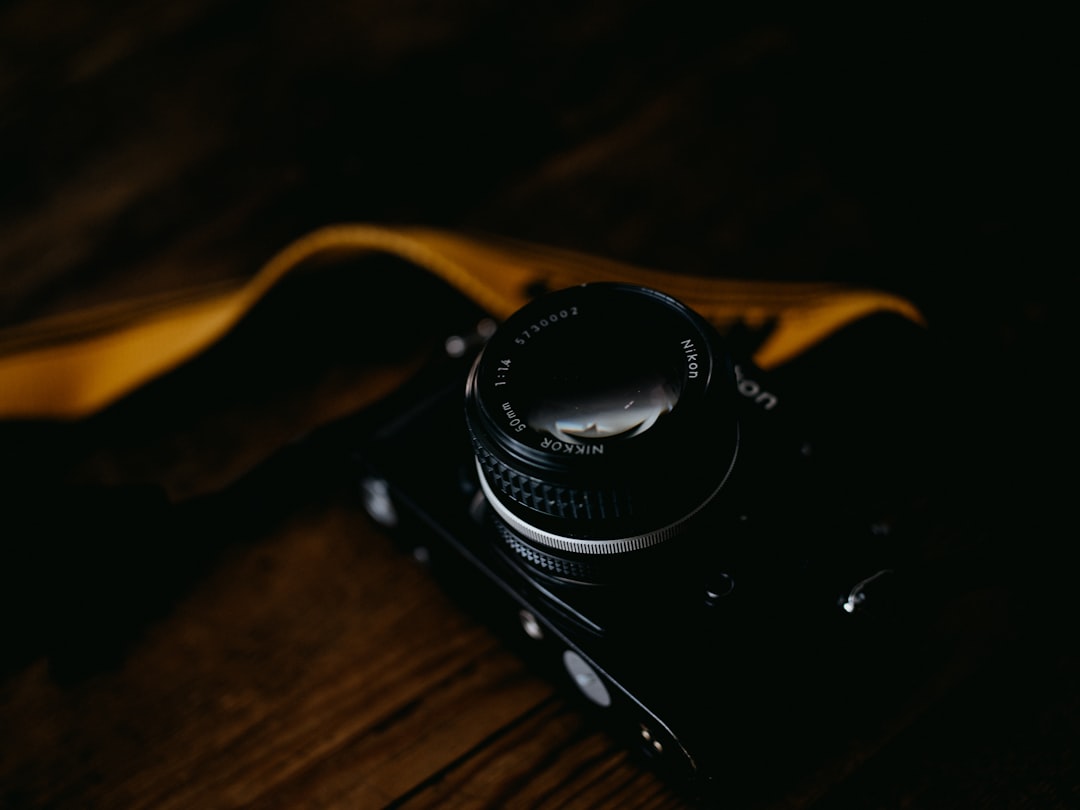
In the grand showdown of Nikon vs Canon, it’s clear that both brands bring their A-game to the table. Whether you’re a budding photographer or a seasoned pro, you can find a camera that suits your needs within either brand’s lineup.
Summary of Positives and Negatives
Nikon:
-
Positives:
- Excellent image quality with a strong dynamic range.
- Competitive pricing, particularly for lenses.
- User-friendly ergonomics and intuitive menu systems.
- Strong performance in low-light conditions.
-
Negatives:
- Autofocus systems, while good, may lag behind Canon’s in certain scenarios, especially in video.
- Limited options in the mirrorless segment compared to Canon’s rapid expansion.
Canon:
-
Positives:
- Exceptional autofocus performance, especially with Dual Pixel technology.
- Extensive lens selection, including high-quality L-series lenses.
- Strong video capabilities, making it a favorite among videographers.
- User-friendly interfaces with modern touchscreen options.
-
Negatives:
- Generally higher prices for lenses, particularly in the professional range.
- Some users find the menu system more complex than Nikon’s.
Confident Recommendation
Ultimately, the choice between Nikon and Canon boils down to your specific needs and preferences. If you prioritize video quality and autofocus performance, Canon may be the way to go. However, if you’re looking for affordability and excellent low-light performance, Nikon could be your best bet. Whichever brand you choose, you can rest assured that both will serve you well in your photographic journey! 📸✨
Recommended Links
👉 Shop Nikon and Canon Cameras:
- Nikon Cameras: Amazon | Walmart | Nikon Official Website
- Canon Cameras: Amazon | Walmart | Canon Official Website
Relevant Books:
FAQ
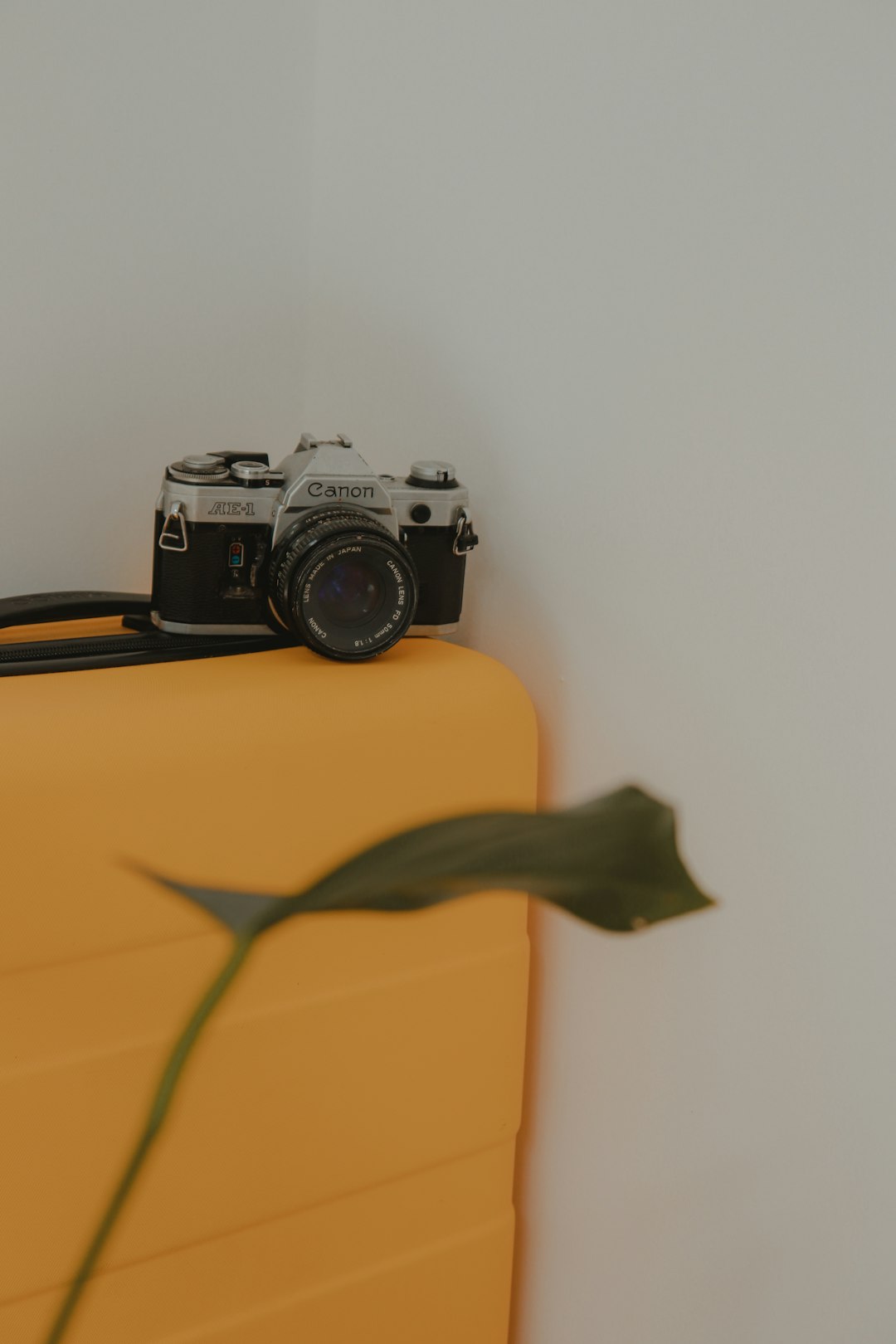
Is Nikon or Canon better for beginners?
Both brands offer excellent entry-level cameras that are user-friendly and packed with features. Nikon’s DSLRs, like the D3500, are often praised for their intuitive controls and great image quality, while Canon’s EOS Rebel series is known for its ease of use and extensive lens options. Ultimately, it depends on personal preference and comfort with the camera’s layout.
Read more about “Is Fujifilm Beginner Friendly? 7 Cameras to Kickstart Your Journey! 📸 …”
Which brand, Nikon or Canon, has a wider selection of lenses?
Canon has a slight edge when it comes to lens selection, especially with its extensive range of EF and RF lenses. However, Nikon’s F-mount and Z-mount lenses are also highly regarded, and both brands offer third-party lens options from manufacturers like Sigma and Tamron.
Read more about “Which Company is Best for Camera? Top 6 Brands Reviewed! 📸 …”
Do Nikon cameras perform better than Canon in low light?
Nikon cameras are often praised for their low-light performance, particularly in their full-frame models. However, Canon has made significant strides in this area as well, especially with newer models like the EOS R6. Both brands can produce excellent results in low-light conditions, but Nikon may have a slight advantage.
Are Nikon cameras more durable than Canon cameras?
Durability can vary by model, but both Nikon and Canon offer robust cameras designed to withstand the rigors of professional use. Generally, higher-end models from both brands feature weather-sealing and rugged builds. It’s essential to check the specifications of individual models for durability ratings.
Read more about “Do Professionals Use Nikon? 7 Reasons Why They Choose Nikon! 📸 …”
Which brand, Nikon or Canon, offers better video quality?
Canon is often regarded as the leader in video quality, particularly with its Dual Pixel autofocus system, which excels in live view and video recording. However, Nikon has made significant improvements in its video capabilities, especially with the Z series cameras, making both brands viable options for videographers.
Read more about “The Best Camera Brand in the World: Top 10 Picks for 2025 📸”
Is Nikon or Canon better for professional photography?
Both brands are widely used by professionals, and the choice often comes down to personal preference and specific needs. Canon is often favored for its autofocus and video capabilities, while Nikon is appreciated for its image quality and dynamic range. Ultimately, both brands have models that cater to professional photographers.
Read more about “Is Fujifilm a Good Camera Brand? 7 Reasons to Consider! 📸 …”
How do Nikon and Canon compare in terms of autofocus performance?
Canon’s Dual Pixel autofocus system is considered one of the best in the industry, especially for video and live view shooting. Nikon’s autofocus systems are also strong, particularly in their DSLRs, but they may not match Canon’s performance in certain scenarios, especially in video applications.
Which is cheaper, Nikon or Canon?
Pricing can vary significantly depending on the model and lens options. Generally, Nikon cameras and lenses tend to be more competitively priced, especially for entry-level and mid-range models. Canon offers a broader range of options, but some of their premium lenses can be more expensive.
Read more about “Explore the World of Leica Cameras: 10 Must-Know Models for 2025 📸”
